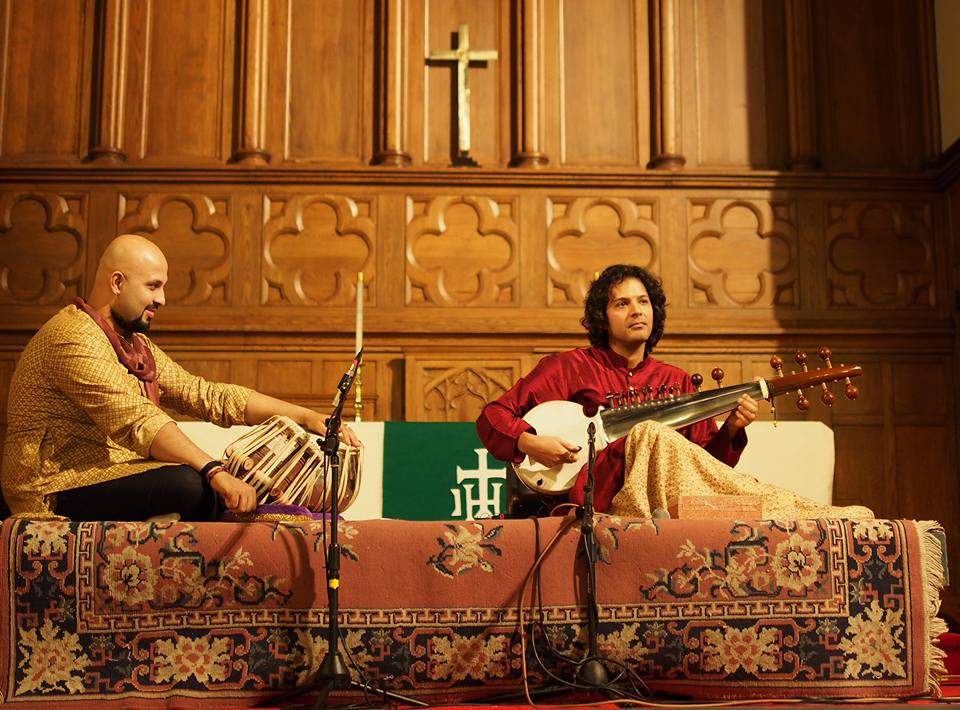
Ayaan Ali Bangash shared the intricacies of Indian classical music with audiences at the Lotus Festival on Saturday, September 17, 2016. Connecting with the audience is important, Bangash explained, and Lotus is an opportunity to find commonalities across cultures through music.
"This festival can really raise the message of unity that we need in the world today," Bangash said.
In the seventh generation of musicians in his family, Bangash learned from a young age to play the sarod, classical Indian string instrument. His father, India's foremost classical musician Amjad Ali Khan, is his teacher and a current artist-in-residence at Indiana University's Jacobs School of Music.
Despite his family legacy and personal success, however, Bangash has a humble wish when it comes to performing his music. "End of the day, I hope whoever comes to listen to us comes again, and doesn't run away. That's the mantra."
The sarod evolved from the Afghan rubab, Bangash said. Over time, modifications were made, like replacing the wooden fingerboard with metal one. The sarod itself is made of teakwood and is plucked with a coconut shell plectrum, similar to a guitar pick. There are four drone strings that are played and 11 sympathetic strings which resound underneath the sarod. "Not complex at all," Bangash said with a laugh.
Although the complexities of the sarod take great practice to understand, it's easy to see why its sound is so pleasing. It's a vehicle for self-expression, no matter what may be happening in life, Bangash said. "Your nature, your journey, your ups, your downs, your breakups, your link-ups - everything comes out in your music."






